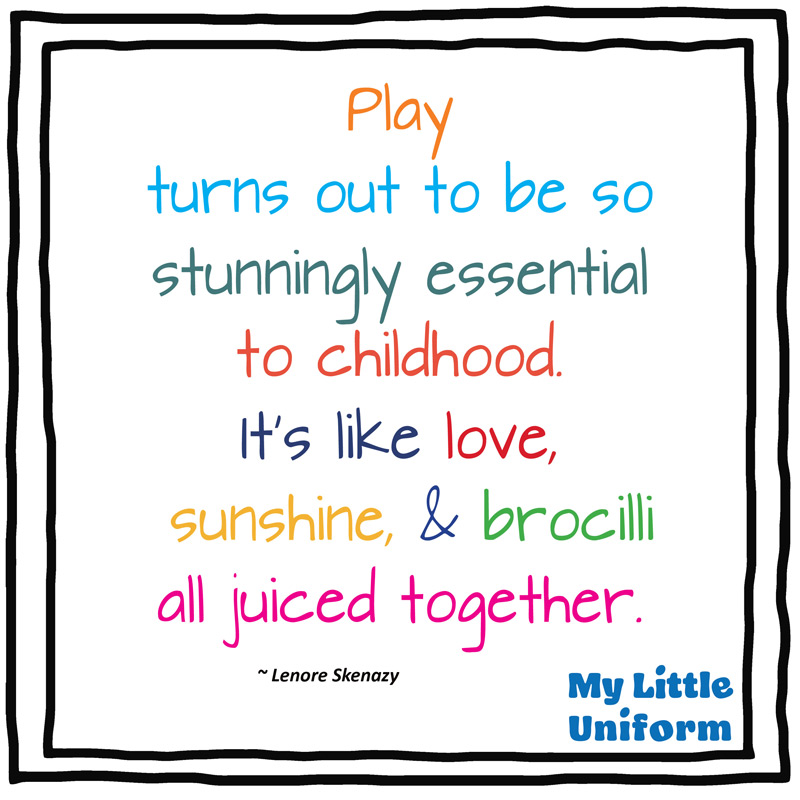“Learning through play” is a phrase that is used a lot when talking about childhood and particlarly about development in the early years but sometimes it is easy to miss just how important play is and what is actually happening during play. We asked Lorraine from All Things Primary to highlight some of the key benefits of play and how they suport early development.
The importance of play.
With a lot of pressure to keep up with reams of paper-based academic work, it is also important to remember the value of play in a child’s education and general development. The question of ‘why is play so important?’ is similar to the question ‘how long is a piece of string?’.
I could write about it for much longer than this blog post, but instead, what I will do is highlight some of the most important reasons to value play, my 5 favourite benefits of play if you will!
Five Benefits of Play
1. Developing oral language and communication skills
These skills develop naturally through play. During play, children develop new thoughts, ideas and scenarios and this naturally develops their vocabulary. While playing with an adult or another child, children develop their communication skills, they learn strategies to communicate with their play-mate and be given opportunities to use newly acquired language and communication skills repeatedly, thus embedding this new knowledge.
2. Develops emotional awareness, management and expression
Through play, and at times with guidance from an adult, children become aware of their own emotions. They develop management and coping skills and learn strategies to cope when things go wrong. They learn appropriate expression and develop emotional control over time. When their Lego tower falls down, they use that experience to manage their emotions and build it again, or transform what is left into something different!
3. Creativity and imagination blossoms
With the freedom of play children naturally express their creativity. They explore and develop their imagination- which has no boundaries. The simplest of objects, such as a stick or a cardboard box, can be easily transformed in the mind of a child to whatever the child desires as they are carefree and not afraid of criticism. Children can express themselves freely through dramatic-play and can become whatever they want to be, a simple hat and an adults shirt can transform them into a pilot or an artist – who says they are not if that’s what their imagination says?
4. Problem-solving
Within play, children come across obstacles and they find a way to overcome it if given the space and then time. Too often we want to swoop in and ‘fix’ the ‘problem’, whereas children have an amazing ability to ‘fix’ their own ‘problems’. A child playing in a water tray who can’t get the water to stay in a container or a child who can’t get the paper to stay where they need it to stay – take a step back and simply watch, you will be amazed! And I can almost guarantee they won’t solve it the same way an adult would have done! But none-the-less – it will be solved!
5. Fine motor and gross motor development
Before a child can be successful at academic material in school like handwriting etc, they must have developed their fine motor skills. This is means well-developed muscles in their hands which will allow them to do things like hold a pencil or a crayon with strength and good control. The best way to develop these muscles is, you guessed it, through play! Lego, play-doh, threading laces through colanders, trying to pick up ice cubes, making jigsaws etc are all fantastic activities for little hands to strengthen these muscles. Of course, colouring and writing do too, but there is so much more to do beforehand!
Gross motor skills are skills that involve the larger muscles groups in the body and the stronger these muscles are the better we can do things like balance, ride a bike, running, jumping and even something as simple as sitting up straight. These muscles develop in a child as they run in the garden, as they balance on a curb, as they navigate the climbing frames in the local park.
It can be hard to remember how much learning is in play. There are a time and a place for ‘school work’, of course, but there should always be more room for play!


